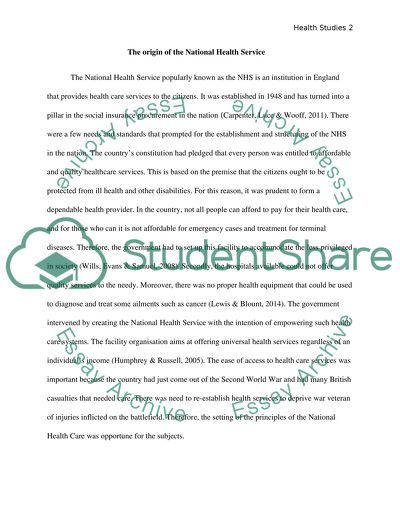Cite this document
(The Origin of the National Health Service Case Study - 1, n.d.)
The Origin of the National Health Service Case Study - 1. Retrieved from https://studentshare.org/health-sciences-medicine/1679889-health-studies-discuss-the-origins-structure-and-function-of-the-nhs-and-discuss-the-major-challenges-the-nhs-will-face-over-the-next-five-years
The Origin of the National Health Service Case Study - 1. Retrieved from https://studentshare.org/health-sciences-medicine/1679889-health-studies-discuss-the-origins-structure-and-function-of-the-nhs-and-discuss-the-major-challenges-the-nhs-will-face-over-the-next-five-years
(The Origin of the National Health Service Case Study - 1)
The Origin of the National Health Service Case Study - 1. https://studentshare.org/health-sciences-medicine/1679889-health-studies-discuss-the-origins-structure-and-function-of-the-nhs-and-discuss-the-major-challenges-the-nhs-will-face-over-the-next-five-years.
The Origin of the National Health Service Case Study - 1. https://studentshare.org/health-sciences-medicine/1679889-health-studies-discuss-the-origins-structure-and-function-of-the-nhs-and-discuss-the-major-challenges-the-nhs-will-face-over-the-next-five-years.
“The Origin of the National Health Service Case Study - 1”. https://studentshare.org/health-sciences-medicine/1679889-health-studies-discuss-the-origins-structure-and-function-of-the-nhs-and-discuss-the-major-challenges-the-nhs-will-face-over-the-next-five-years.


